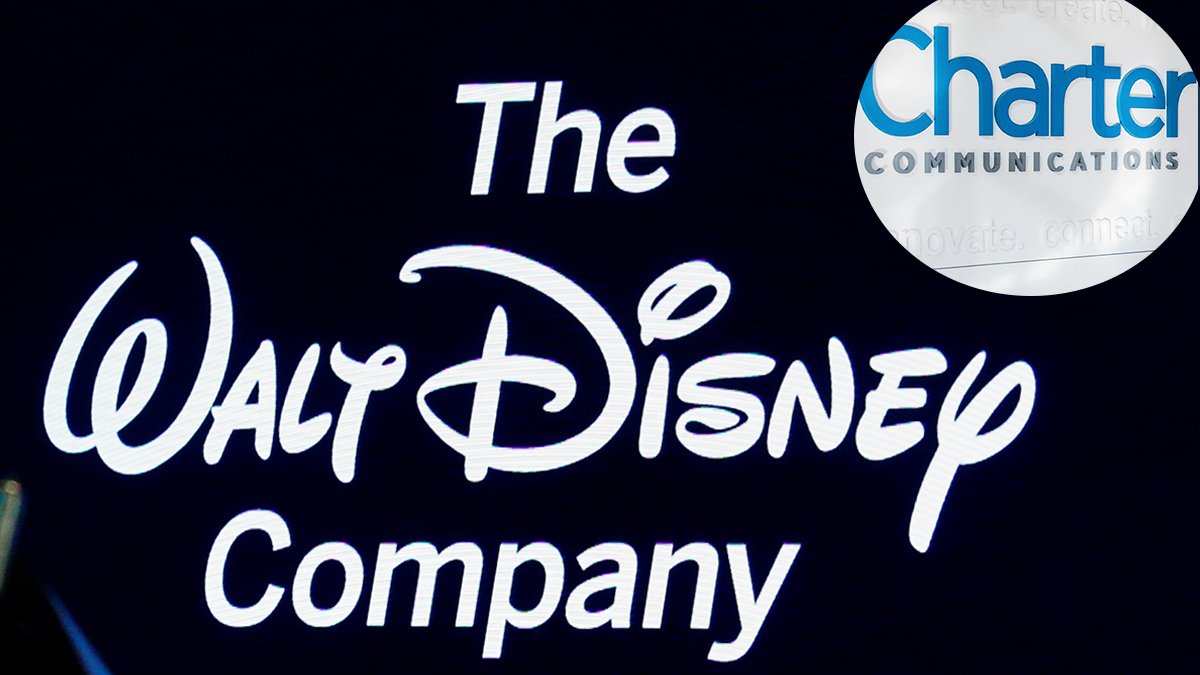The Walt Disney Company and Charter Communications have reached a deal that will bring the company’s vast portfolio of networks, including ESPN and ABC, back to nearly 15 million households. This pact ends a blackout that lasted for more than a week and led to a contentious back-and-forth as Disney televised sporting events such as the US Open finals, college football matchups and the revamped First Take featuring Shannon Sharpe.
Questions remained pertaining to whether or not subscribers would be granted access to watch star quarterback Aaron Rodgers make his New York Jets debut on Monday Night Football at 8:20 p.m. EST/5:20 p.m. PST, something that consumers immediately have access to now that a deal has been reached. The company reportedly pays the National Football League $2.7 billion per year for the rights to the property, which has flex scheduling ability for the first time this season.
As part of the new deal, Spectrum customers will receive the services at a discount, something that could help incentivize sign-ups. The Disney+ basic ad-supported offering will be included for Spectrum TV Select package customers within a wholesale arrangement. Additionally, Disney will receive a higher annual fee despite the diminishing profitability of the linear television business.
“Our collective goal has always been to build an innovative model for the future. This deal recognizes both the continued value of linear television and the growing popularity of streaming services while addressing the evolving needs of our consumers,” The Walt Disney Company and Charter Communications said in a joint statement. “We also want to thank our mutual customers for their patience this past week and are pleased that Spectrum viewers once again have access to Disney’s high-quality sports, news and entertainment programming, in time for Monday Night Football.”
Spectrum customers will receive a curated lineup of 19 networks from the company – including ESPN, ABC-owned television stations, FX and National Geographic. Networks that will no longer be offered to Spectrum customers include Disney Junior, Disney XD, Freeform and FXX; however, Charter will use “its significant distribution capabilities” to provide the company’s direct-to-consumer (DTC) services. ESPN’s flagship DTC service, upon launch, will be made available to Spectrum TV select subscribers, while ESPN+ is being provided to Spectrum TV Select Plus subscribers.
Charter Communications Chief Executive Officer Chris Winfrey held a meeting with investors earlier in the month outlining the company’s belief that “the current video ecosystem is broken” and that it could be part of the solution. Within Charter’s offer of a partnership was the ability to augment advertising revenue and help grow the company’s DTC services.
In exchange, the cable provider wanted Disney to provide its ad-supported applications, including Disney+ and Hulu, free of charge to its customers so they do not have to pay multiple times for the same programming. Charter offered Disney a contract with penetration mediums that was rejected, leading Charter to claim that negotiations for a short-term contract seemed to be off the table.
The company had reportedly paid Disney around $2.2 billion per year for carriage rights to networks such as ESPN, ABC, FX and Lifetime among others – and the cessation of such a revenue stream could have impacted live sports rights for years to come. ESPN is set to report its own earnings for the first time this year, believed to be in November, during which people will gain an inside look into the balance sheet of the Disney subsidiary.
In response, Disney asserted that its linear television networks and streaming platforms were not equal because of differences in content and investments. Last quarter, revenue for the enterprise’s linear networks was down 7% year-over-year (YOY), while its operating income declined 23%.
Streaming networks retained similar levels of paid customers with a concurrent 3% decline in average monthly revenue per paid subscriber. Nonetheless, both entities recognize the effects of cord-cutting with 8 million households ending television bundles approximate year-to-date. Moreover, there has been a near 25% abatement in total linear customers over the last five years, expediting the necessity for innovation to discover new ways to reach these audiences.
Charter stated that it would need to find new ways to benefit their connectivity relationships and, in turn, ensure sustained growth and profitability. In fact, Winfrey indicated that the corporation would seek to negotiate similar terms in future contracts. As a result, it was prepared to move on should the sides not reach an agreement on a collaborative business model.
Amid strikes by both the Writers Guild of America (WGA) and the Screen Actors Guild – American Federation of Television and Radio Artists (SAG-AFTRA) against the Alliance of Motion Picture and Television Producers (AMPTP), live sports and shoulder programming are fueling interest in linear television. Last year, National Football League games alone accounted for 88 of the 100 most-watched television programs, according to data from Nielsen Media Research. Live rights fees continue to rise as well during a moment when the industry is embracing the coalescence of traditional and digital distribution mediums.










